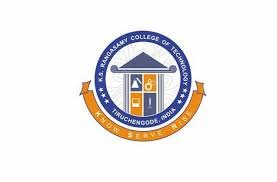M.Tech. Nano Science & Technology: Diverse careers, high demand, innovation, global impact, competitive salaries.
Future Scope & Benefits: M.Tech. Nano Science Technology Course
The future scope and benefits of pursuing an M.Tech. Nano Science and Technology courses are promising and multifaceted, given the growing significance of nanotechnology in various industries. As a highly specialized field, nanoscience and technology offer a unique blend of opportunities and advantages for graduates. Here, we delve into the future scope and the numerous benefits associated with this program:
1. Pioneering Nanotechnology Advancements:
Graduates of M.Tech. Nano Science and Technology programs are at the forefront of nanotechnology innovations. They have the opportunity to contribute to groundbreaking research and development, driving advancements in various sectors.
2. Multidisciplinary Career Opportunities:
Nanotechnology is inherently multidisciplinary, and this diversity extends to career opportunities. Graduates can pursue careers in areas such as materials science, electronics, healthcare, energy, environmental science, and more, making them versatile professionals.
3. High Demand for Nanotech Experts:
The demand for experts in nanotechnology is continuously rising across industries. As nanotechnology applications expand, there is a growing need for professionals who can design, develop, and apply nanoscale materials and devices.
4. Research and Development Roles:
M.Tech. Nano Science and Technology graduates can thrive in research and development roles. They can work on projects related to nanomaterial synthesis, nanoelectronics, nano-optics, and nanomedicine, contributing to scientific breakthroughs.
5. Nanomedicine and Healthcare:
Nanotechnology has revolutionized healthcare. Graduates can work on developing targeted drug delivery systems, diagnostic tools, and innovative therapies, contributing to advancements in patient care and disease treatment.
6. Electronics and Photonics:
The electronics industry benefits from nanoscale components and materials. Graduates can design nanoelectronic devices, high-performance sensors, and ultra-compact integrated circuits, driving progress in electronics and photonics.
7. Energy and Environment:
Nanotechnology plays a pivotal role in renewable energy solutions, energy storage, and environmental remediation. Graduates can work on projects related to solar cells, energy-efficient materials, and pollution control technologies.
8. Nanomaterial Manufacturing:
Nanomaterials have diverse applications in industries like aerospace, automotive, and construction. Graduates can work in nanomaterial manufacturing, ensuring quality control and scalability.
9. Entrepreneurship and Startups:
Many M.Tech. Nano Science and Technology graduates opt for entrepreneurship. They can start nanotech-focused companies, develop patented technologies, and introduce innovative products to the market.
10. Academic and Research Institutions:
Graduates interested in academia can pursue teaching and research positions at universities and research institutions. They can mentor the next generation of nanoscientists and contribute to academic advancements.
11. Government and Regulatory Bodies:
Some graduates find careers in government agencies and regulatory bodies that oversee nanotechnology safety standards and policies, ensuring responsible development and deployment.
12. International Collaboration:
Nanotechnology is a global field, and graduates have opportunities to collaborate with researchers and organizations worldwide, expanding their horizons and expertise.
13. Intellectual Property and Patents:
Those involved in nanotech research often contribute to intellectual property creation. Graduates may have the opportunity to file patents for novel inventions and technologies.
14. Competitive Salaries:
The specialized nature of nanotechnology careers often translates into competitive salaries and benefits. Professionals in this field are highly valued for their expertise.
15. Interdisciplinary Skills:
M.Tech. Nano Science and Technology programs equip graduates with interdisciplinary skills in physics, chemistry, biology, and engineering. These skills are transferable and enhance career versatility.
16. Contribution to Global Challenges:
Nanotechnology offers solutions to pressing global challenges such as healthcare, energy sustainability, and environmental protection. Graduates can contribute to addressing these critical issues.
17. Continuous Learning and Innovation:
Nanotechnology is a rapidly evolving field, ensuring that professionals never stop learning. Graduates are immersed in an environment of innovation and discovery.
18. Career Growth and Advancement:
Graduates can advance their careers by pursuing higher education, such as Ph.D. programs, or by taking on leadership roles within organizations. Nanotech professionals often have clear pathways for career progression.
19. Impact on Society:
Many nanotechnology applications have a profound impact on society, from improving healthcare to enhancing electronic devices. Graduates can take pride in contributing to advancements that benefit humanity.
20. International Recognition:
Nanotechnology is recognized globally as a transformative field. Graduates are part of a community that receives international recognition and support.
 2 Years
2 Years
 Post Graduate
Post Graduate
 Engineering
Engineering
 Full Time
Full Time







 back
back